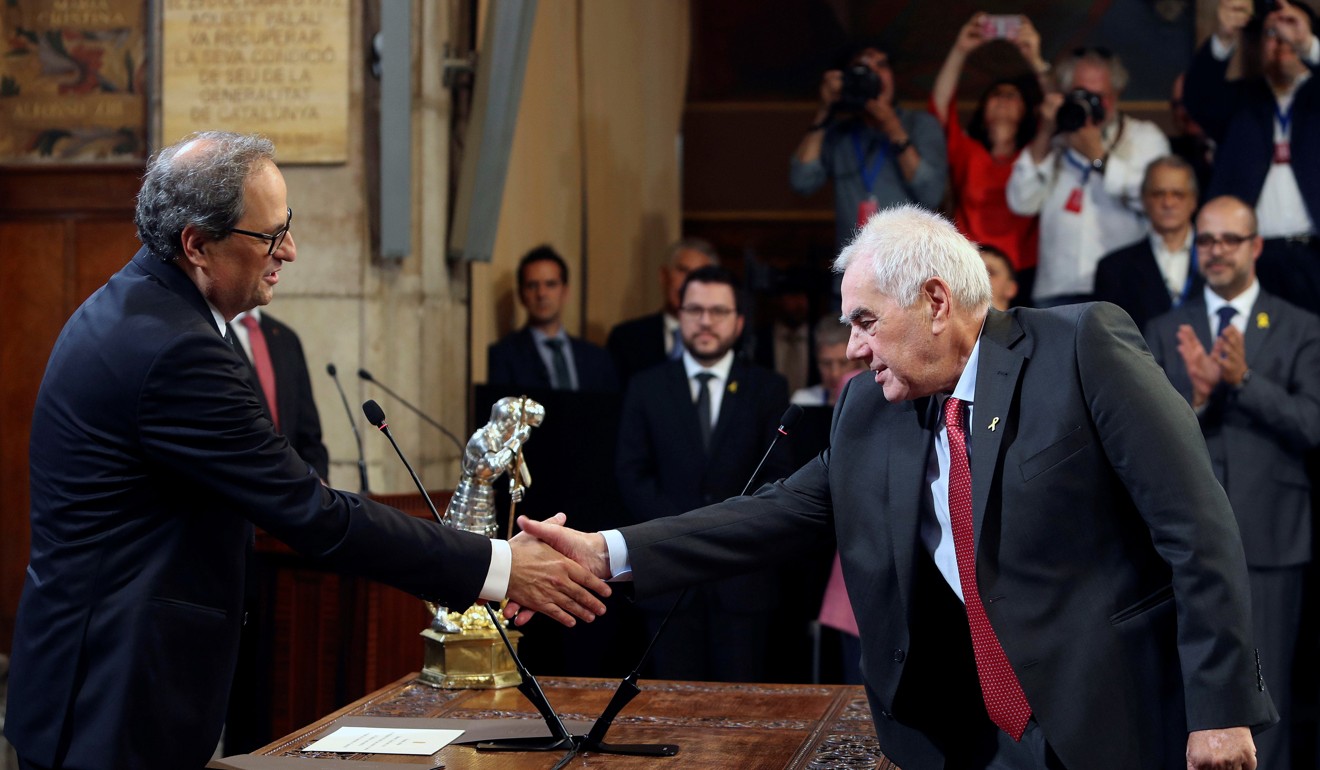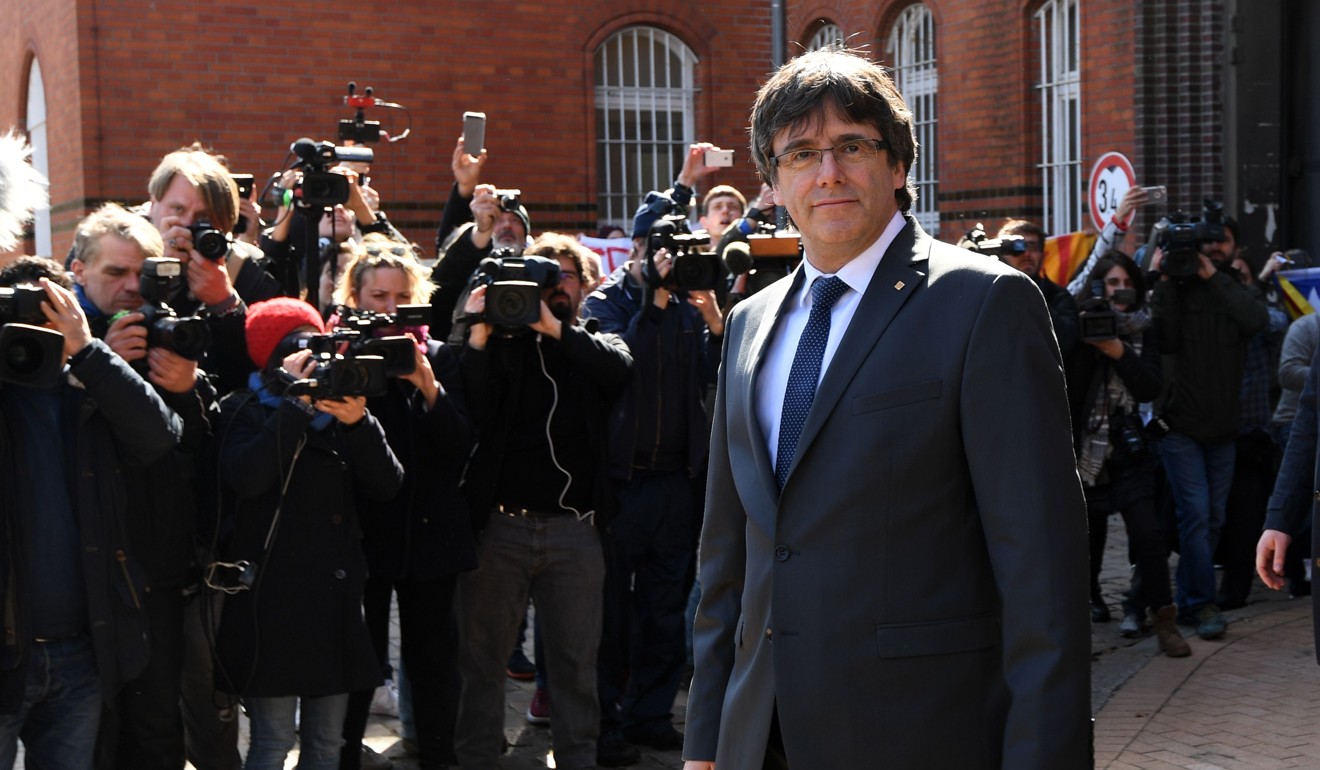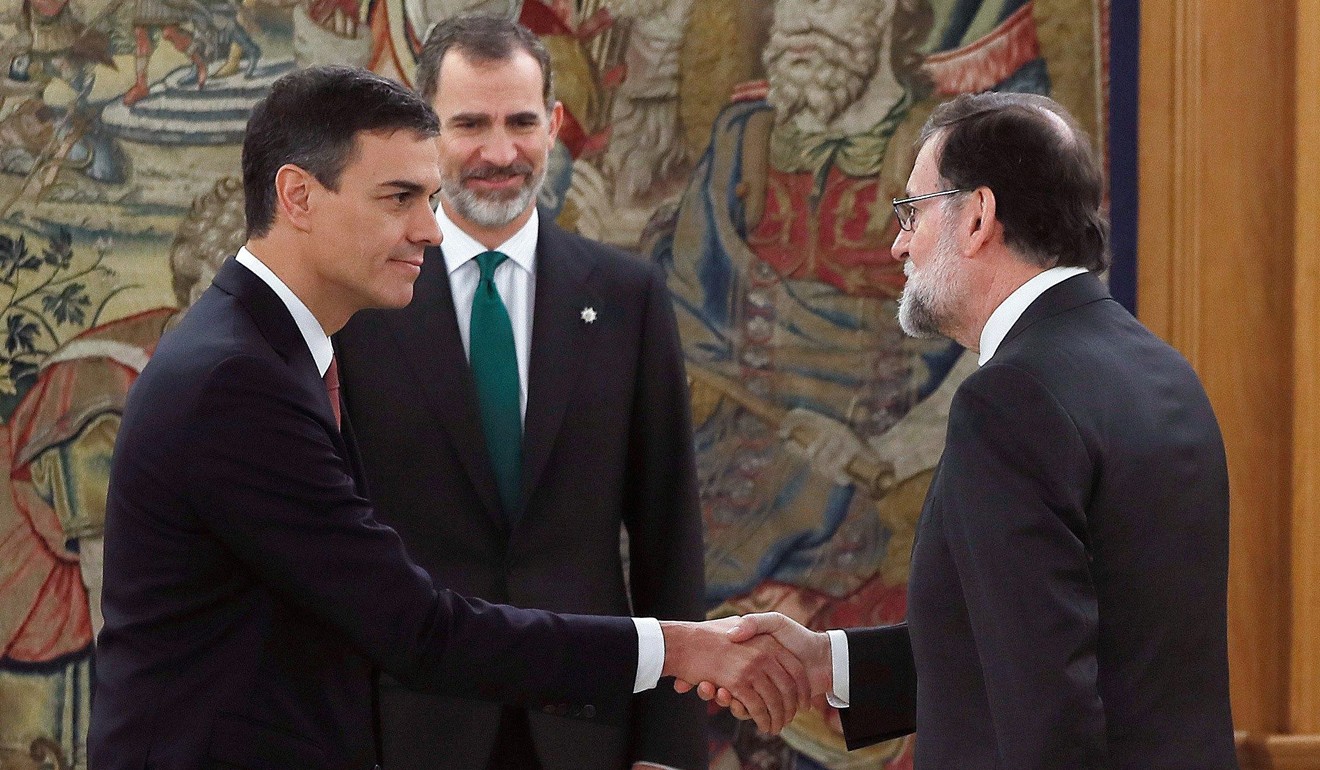
Catalonia’s new chief vows to continue secession push as Spain’s new PM Pedro Sanchez is sworn in
The forming of the new regional government automatically ended the takeover of the area by central powers, which started after last October’s illegal declaration of independence
The separatist leader of Spain’s Catalonia region says he will continue to push for secession after the end of a seven-month takeover by national authorities following last year’s failed breakaway bid.
Quim Torra said after swearing in his Cabinet that “this government accepts the charge to continue forward with the mandate to form an independent state”.
The forming of a Catalan government automatically ended the takeover of the region by central powers started after last October’s illegal declaration of independence by the region’s parliament.
According to the extraordinary powers granted to Spain’s central government by the Senate, the large degree of self-rule enjoyed by the region would be returned once it formed a government after a new election.
Separatists won a December election and chose fervent separatist Quim Torra as regional chief.
The members of Catalonia’s former government are to be tried on charges including rebellion. Several are in pre-trial jail and others fled the country as fugitives.

German prosecutors on Friday made a fresh request to have former Catalan leader Carles Puigdemont taken into custody pending a ruling on his extradition to Spain.
A court in northern Germany had allowed Puigdemont, Catalonia’s former regional president, to leave jail on bail shortly after he was detained March 25 at Spain’s request.
Spanish authorities have charged him with rebellion and misuse of funds in connection with an unauthorized referendum last year on Catalonia’s independence from Spain.

Schleswig prosecutors said they believe Puigdemont poses a flight risk and asked the regional court reimpose extradition detention.
Torra has repeatedly requested to open talks with new Spanish Prime Minister Pedro Sanchez, who was sworn in earlier Saturday and has promised to meet with Torra.
Torra said: “Pedro Sanchez, let us talk, take risks, both you and I, let us sit down at a table and talk, government to government.”

Sanchez came to power Saturday at a ceremony at the Zarzuela Palace a day after successfully leading a no-confidence vote to oust predecessor Mariano Rajoy following a court ruling in a major corruption case involving the conservative leader’s Popular Party.
The Parliament voted 180-169 Friday to replace Rajoy’s government with one led by Sanchez. One lawmaker abstained.
Spain is the euro zone’s No. 4 economy and an influential member of the European Union. Sanchez and his party are staunch supporters of the EU and the shared currency.
The 46-year-old Sanchez is Spain’s seventh prime minister since the return to democracy following the death of dictator General Francisco Franco in 1975.

